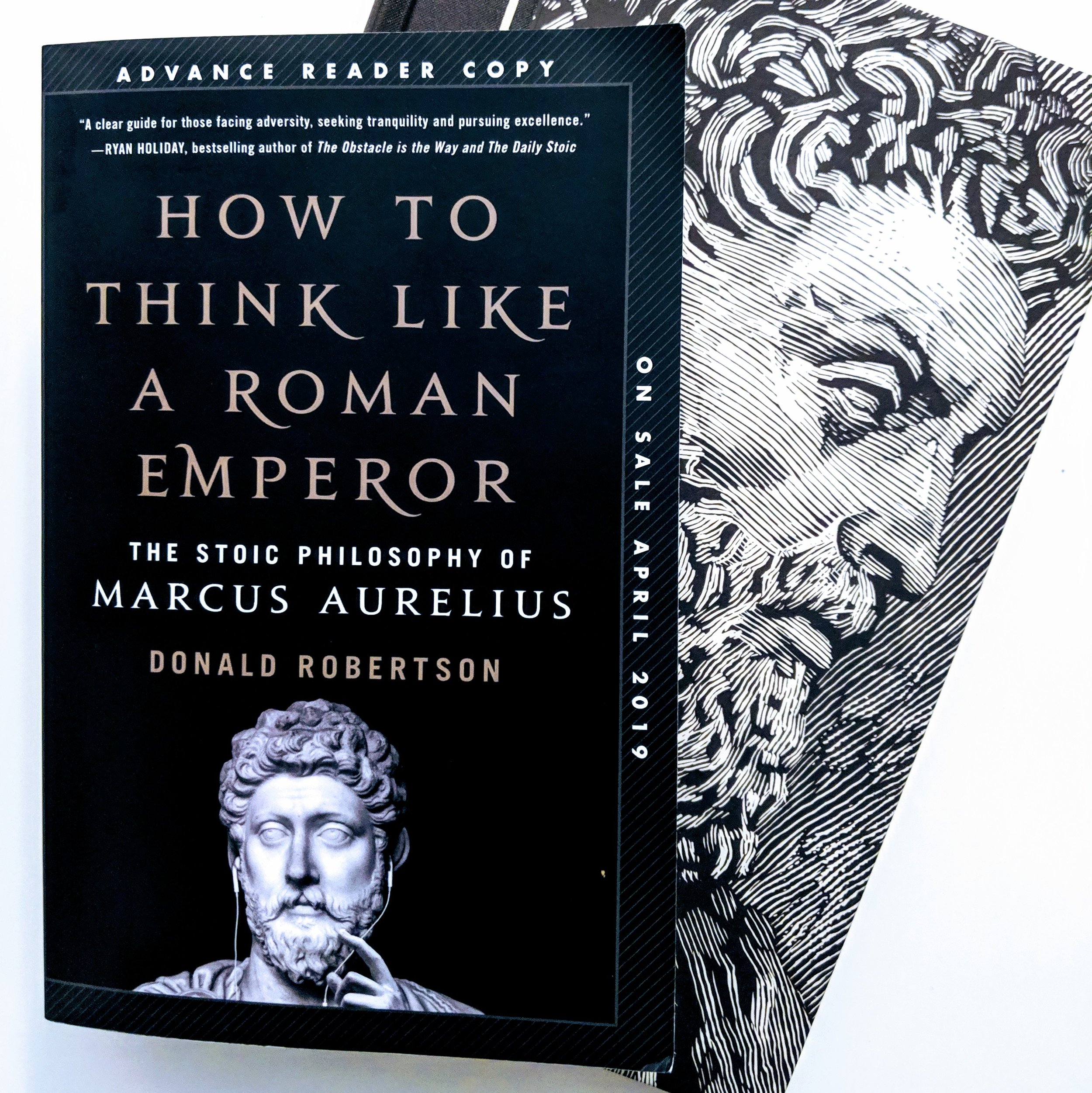Donald Robertson's latest book, How to Think Like a Roman Emperor, is a worthwhile addition to any practicing Stoic's library. Within it, Donald builds a case for the efficacy of Stoic practice and also provides a rich variety of tools for direct engagement with the philosophy. He does this through the lens of Marcus Aurelius's life. Drawing from the historical record and, of course, from Marcus's own writings, Donald weaves a tale that presents a living man; a real person who had to work hard to better himself and who sought to live up to the high ideals of his life philosophy. The reader is invited to watch the Emperor struggle, learn, and progress. We see a Stoic living life, and this example allows opportunity for personal reflection as to how we ourselves can apply Stoicism in life.
When I began the book, I was a bit concerned that the material would prove too familiar. I read The Meditations regularly and also understand the basic outline of Emperor Aurelius's life. I was happy to find instead that I was engaged throughout the experience. I was well acquainted with much of the material but, even so, Donald's storytelling made everything feel fresh. The reader is presented with a biography of an emperor and a Stoic but the emphasis is not specifically on the great losses and victories of his life and reign, but on how such moments in the man's life shaped his philosophy and spurred his progress during his Stoic journey. My time with the book was a meditative experience. I was able to watch Marcus wield the very same Stoic practices, tools, and viewpoints that I apply in the day to day. Walking alongside this representation of a fellow Stoic's life allowed for reflection on my own journey.
I'm excited for those who will be introduced to Stoicism through this book. How to Think Like a Roman Emperor, presents a Stoicism that is well-rounded, practical, and healthy. The reader will gain an understanding of the shape of our philosophy while also finding ways to apply it to their lives. More importantly, Donald presents a philosophy that is worth wrestling with. He shows us that Stoicism is a loving and joyful thing. That's an important aspect of any Stoic introduction. My personal introduction to Stoic philosophy was Bill Irvine's , A Guide to the Good Life. Other's have recently been finding their way through Massimo Pigliucci's, How to Be a Stoic. Both of these books succeed because they present not just a life philosophy but a lived-in philosophy. We see that Stoicism can become part of a real life. Like these books, How to Think Like a Roman Emperor, presents not just the facts of the philosophy but its vibrant spirit. Anyone who starts on the Stoic path through this book will be well provisioned for their journey. I also enjoy knowing that if any of these new practitioners ask me, "what's the next book for me, I'd like to know more," I could simply point them to one of Donald Robertson's earlier books, Stoicism and the Art of Happiness. If they weren't from different publishing houses, I'd suggest the books be bundled as a modern Stoic starter pack. Taken together, a person will gain a robust understanding of Stoicism along with ample instruction as to practical application.
How to Think Like a Roman Emperor: The Stoic Philosophy of Marcus Aurelius, is beneficial for both the practicing Stoic and those who are curious about the philosophical life. We are fortunate to have access, through Marcus Aurelius, to the private thoughts of an ancient Stoic practitioner. In political position and in time, Marcus is far removed from us and yet in practice he was simply a person trying his best to live up to his own ideals. I can certainly relate. I'm pleased to have had the chance to read this book. Donald Robertson has added something unique to the Stoic corpus. I enthusiastically recommend it to you.
Available now for pre-order. Scheduled for release in April 2019

